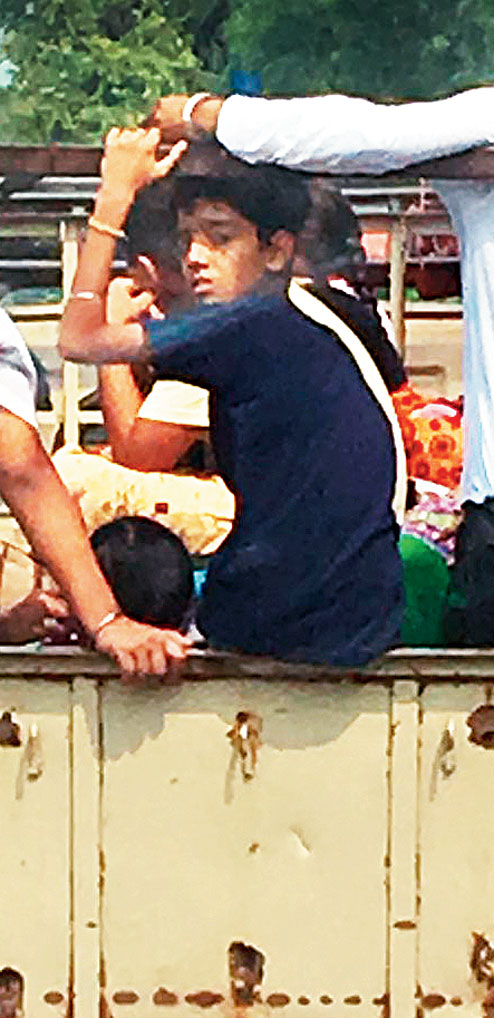

12 NOON Khem Karan Town, around 4km from the Pakistan border
Surinder Kumar can still hear the tanks rolling. But little Manas is leaving what came to be known as the graveyard of tanks in much quieter circumstances.
For over a hundred years, Surinder’s family has lived in this border town. Today, 12 of the 20-member family are preparing to board a pick-up van.
The 12 — five adults and seven children — are carrying only their personal belongings.
The destination is the holy city of Amritsar, around 65km from the town.
“School is closed. My parents told me we have to go somewhere safe till the situation improves.
There was no problem in the town but everyone is scared,” says Manas, 13, the youngest in the family.
The family had last moved out during the summer of 1999 when the Kargil war had broken out. They had then stayed
in a rented house for nearly two months.
Manas, born four years later, is bracing for his first brush with evacuation.
The Punjab government, following an advisory from the Union home ministry, has asked residents of all villages and towns within 10km of the Pakistan border to evacuate as a precaution against possible retaliation to the surgical strikes.
DEPARTURE


12.15PM
Surinder, the head of the family, is staying back with two of his sons. Retaliation or not, somebody has to take care of the family home.
Surinder waves and the children reciprocate. His youngest son Rakesh is at the wheel. The eldest, Nand Kishore, is seated beside him. The rest are at the back.
It is time to leave.
The small border town had fallen to the Pakistan Army during the 1965 war. The Indian Army turned the tables on the Pakistanis in the battle of Asal Uttar, a village around 8km from Khem Karan that falls on the way to Tarn Taran, the district headquarters. That was also in September.
The bravery of Havildar Abdul Hamid of the 4th battalion of the Grenadiers in that battle became part of military lore. The Param Vir Chakra was conferred on him posthumously, and Khem Karan-Asal Uttar came to be known as the graveyard of tanks.

“We had to escape from our home, leaving behind all our belongings. We could hear the tanks rolling in the night and there was panic all around. I don’t want to see that happening again,” Surinder says.
12.45PM
On the Khem Karan road near Bhikhiwindi village, the pickup overtakes another family travelling with a buffalo.

Fifteen minutes later, they overtake another family on the move. The evacuation is making its presence felt.
1.15PM
At Mannar, the vehicle stops for the family to drink water from a roadside langar (community kitchen).
The state government has set up six camps and has plans for more. But many families prefer staying with relatives or in rented accommodation.“Staying at the government-run camps is not an option,” says Nand Kishore, Surinder’s eldest son.
ARRIVAL


1.40PM
The tempo stops near Amritsar’s Lahori Gate, where a relative stays.
Destination reached.
“The women and children will stay here for a few days.… We will go back to Khem Karan. If the situation improves, we will take them back or will look for a rented house in Amritsar or Patti,” Nand Kishore says.
Punjab Congress chief and former chief minister Amarinder Singh later said: “The villagers cannot afford to leave behind their livestock. The farmers owning milch animals will suffer huge losses. The harvesting season is about to start, the government should allow the men to stay behind and harvest their crops. Otherwise, they will be ruined.”
Asked why the family does not look for a permanent safe location away from the border, Rakesh, the son at the wheel,
says: “Where will we go? What will we do? It is not that we haven’t thought about it. But we are small shopkeepers and traders. There are thousands like us even in Amritsar. We will be lost.”
For the eldest and the youngest sons, it is time to return to Khem Karan. Somebody has to take care of home.











